Whisky Fundamentals
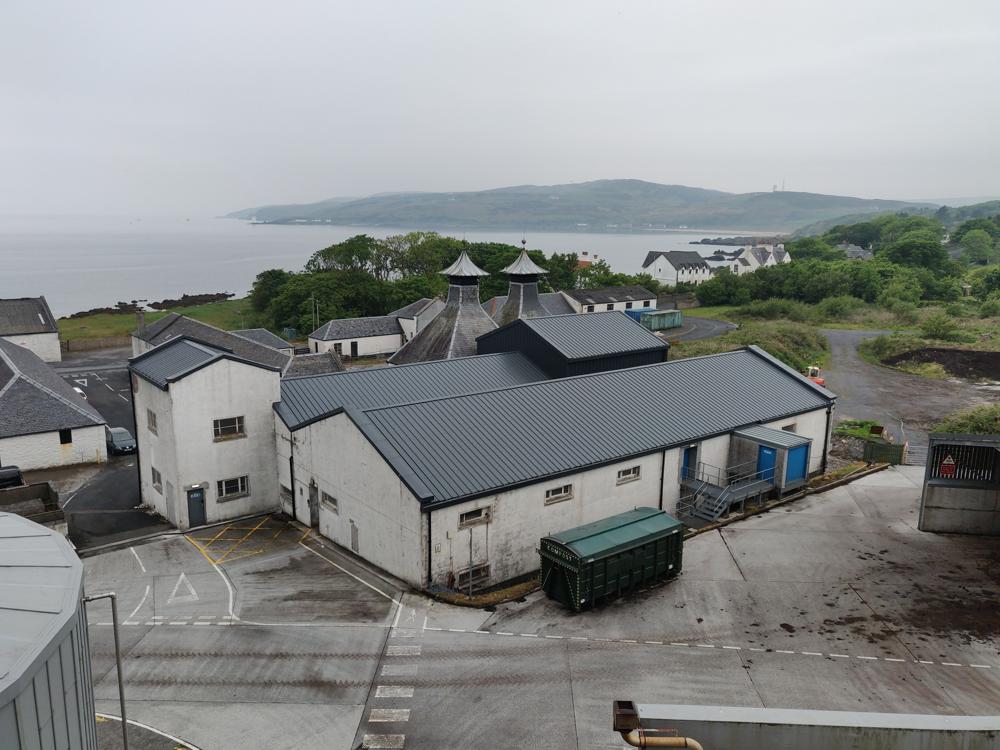
Lost Diageo 11
Published 27/07/2020
The Whisky Loch The history of the Scotch whisky industry, like any others under capitalism is one subject to periods of boom and bust. The 1820s saw a glut of whisky result in a wealth of distilleries halting for years, amalgamated or being lost entirely, it was in this backdrop that the famed Kennetpans Distillery was lost in 1825. By the 1840s the boom had come again and would last for the next few decades, a further slowdown and subsequent boom ended with the Pattison whisky crisis.
Lost Diageo 11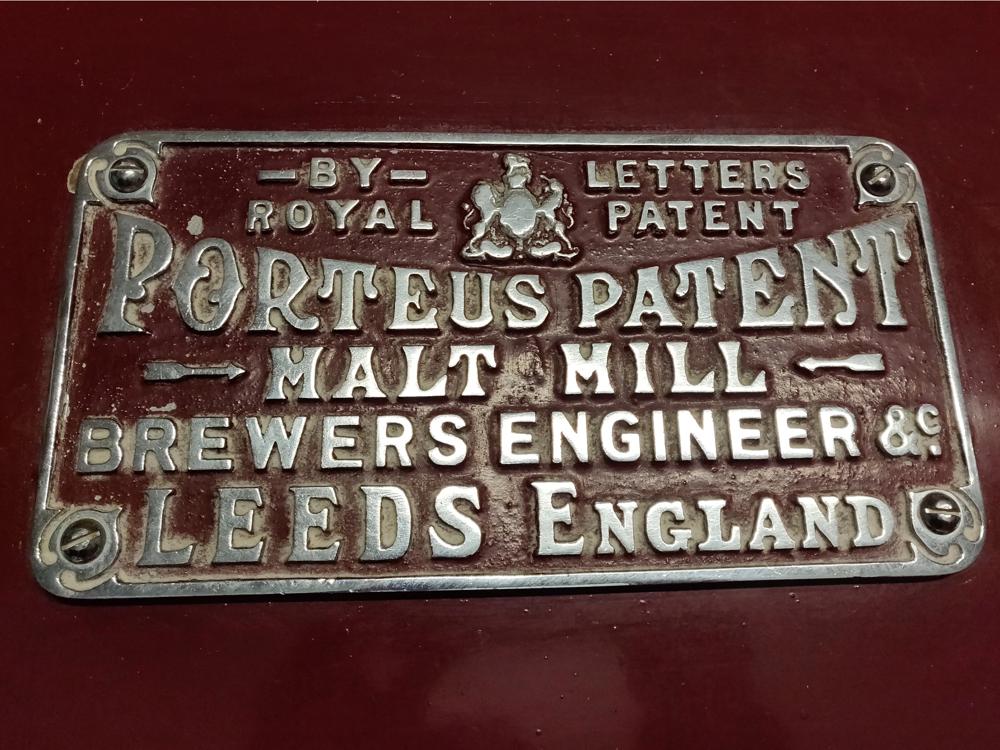
Porteus and Boby malt mills
Published 27/07/2020
What is a mill? A mill is a mechaninical device for breaking down malted barley into flour, grist and husk. After malting, the malted barley, which is as crispy as well-done toast, is milled into powder known as grist. The consistency of this grist is crucial to the extraction of fermentable sugars during the next stage, mashing What is the mill for? The mill in a distillery is used to break or mill malted barley down to facilitate the creation of beer.
Porteus and Boby malt mills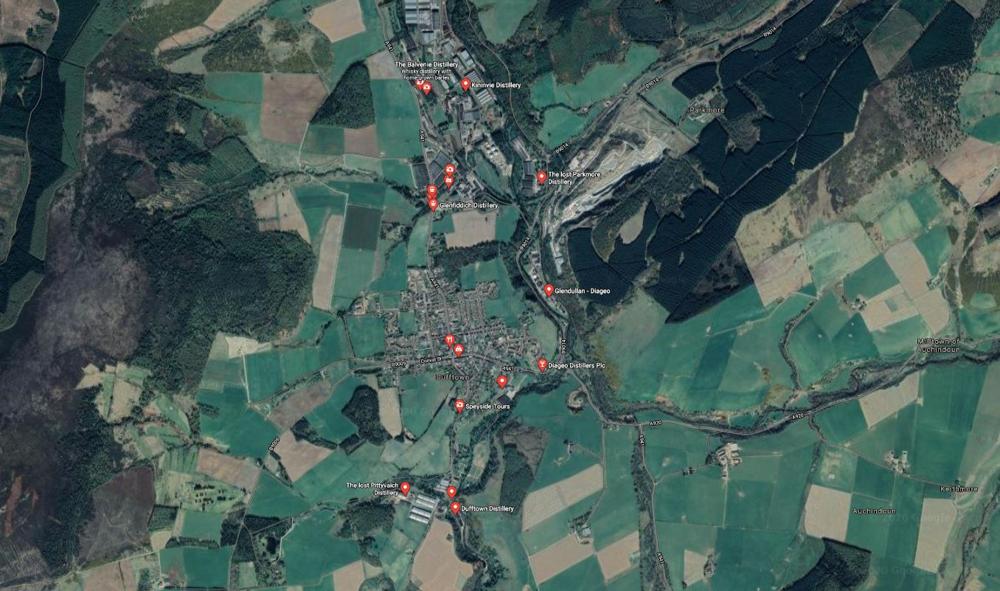
Dufftown's Seven Stills
Published 24/07/2020
If any region in Scotland is known for whisky, it is the Scottish Speyside. If you ask about the whisky capital of Speyside, Dufftown is probably the best answer to this question. This city stands out less because of its population, with only 1,700 inhabitants, than because of its density of whisky distilleries. Dufftown Stands on Seven Stills Between 1823 and 1897, seven whisky distilleries were established in the village, which coined the saying: “Rome was built on seven hills, Dufftown stands on seven stills”.
Dufftown's Seven Stills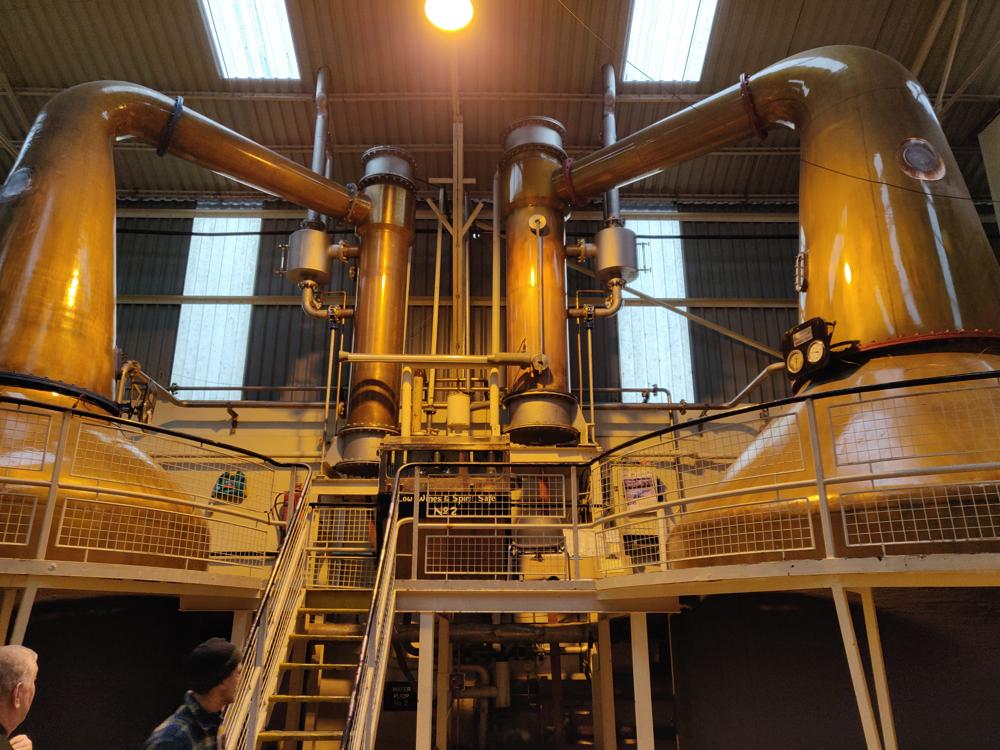
The Condenser
Published 24/07/2020
What is a condensor? A condensor is a device for re-condensing new make spirit upon leaving the still. The steam will arrive in the condenser, which will be filled with water. The water will extract the heat from the steam, which will then condense and the cooler unit will flood. There are two main types of condenser used at distilleries: ‘Shell and Tube’ condensers and ‘Worm Tub’ condensers. The type of condenser used by a distillery hugely effects the flavour of the whisky, with shell and tube condensors creating lighter spirits that those produced by a worm tub.
The Condenser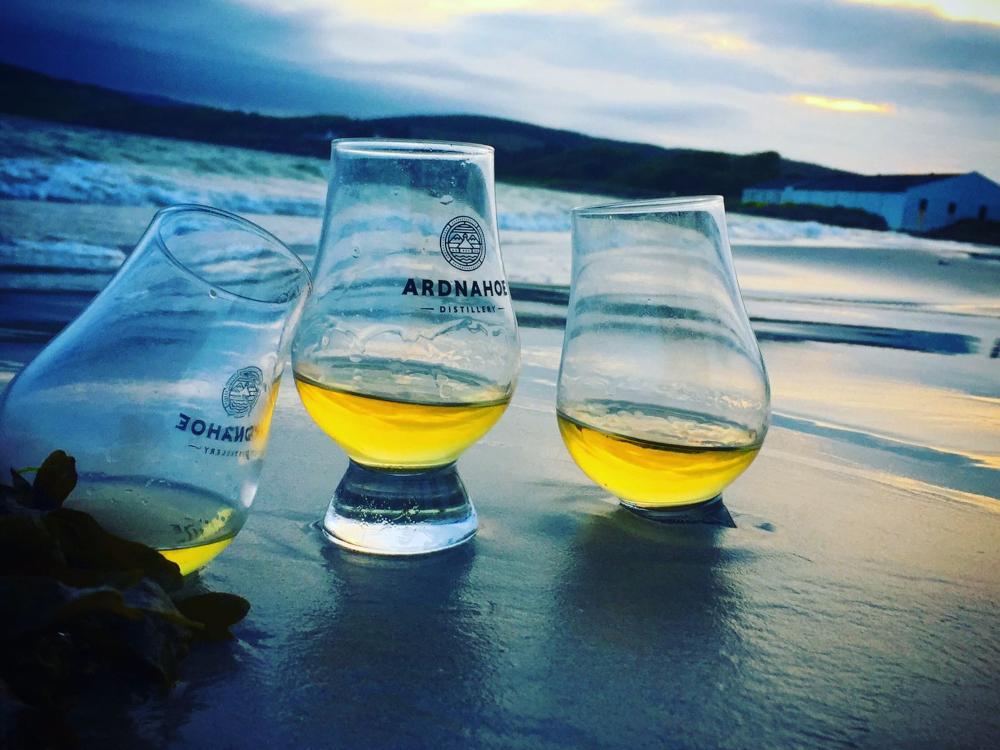
What Is a Dram Of Whisky?
Published 24/07/2020
If you drink whisky regularly, you really can’t avoid hearing someone use the word dram. With good friends in the pub, at a whisky show or when touring a distillery the volume always seems to differ making a dram seem to be a rather imprecise unit of measurement. So it’s high time to get to the bottom of the measure of dram. The British Measurement System Our first research impulse lead us to the Anglo-American system of measurement, which is still used today in parts of the former British Empire.
What Is a Dram Of Whisky?
